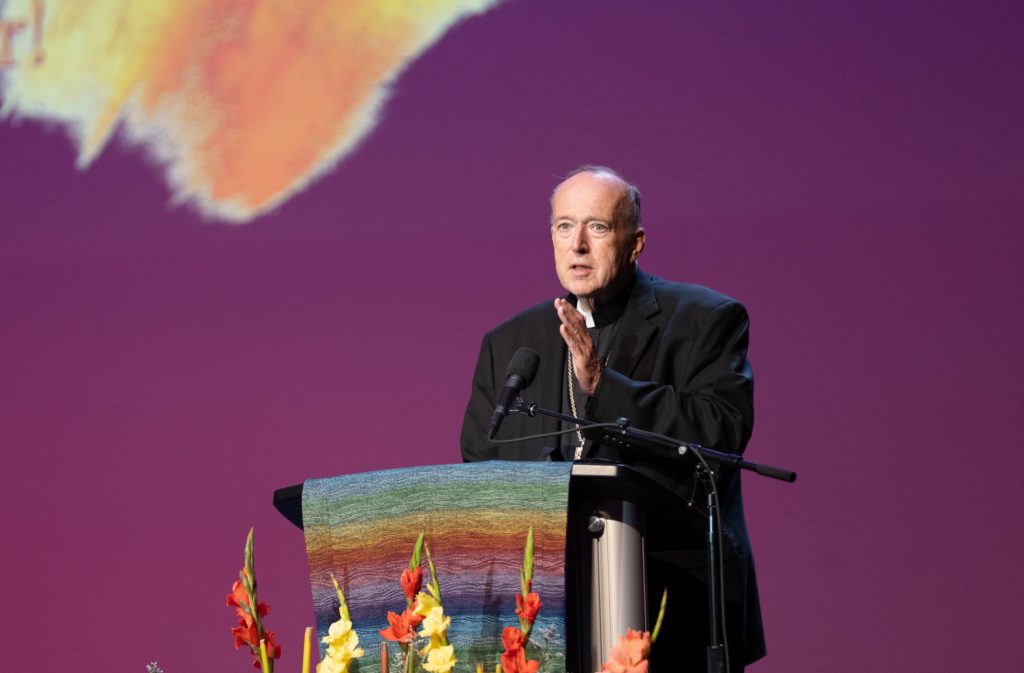The Vatican’s decision to allow varying implementations of its recent document on blessings for people in irregular and same-sex unions is part of a “great move toward decentralization” in the Catholic Church amid the ongoing Synod on Synodality, said Cardinal Robert McElroy of San Diego.
“We have witnessed the reality that bishops of various parts of the world have made rapidly divergent decisions about the acceptability of such blessings in their countries, based substantially on cultural and pastoral factors, as well as neocolonialism,” said McElroy in a talk delivered at the Los Angeles Religious Education Congress Feb. 16.
McElroy, who was served as delegate in last October’s month long Synod gathering, was referring to Fiducia Supplicans (“Supplicating Trust”), the Dicastery for the Doctrine of the Faith’s Dec. 2023 document outlining the possibility of informal, non-liturgical blessings for Catholics in irregular or same-sex relationships.
Such decentralization, McElroy said, must not “obscure” the “rigorous obligation” of the Church everywhere to protect “LGBT persons” and accompany those who are divorced and remarried without an annulment.
While McElroy did not mention the continent by name, the most notable global reaction to Fiducia Supplicans was a public statement from bishops’ conferences across Africa, approved by Pope Francis, declaring that it would not be “appropriate” to carry out the blessings outlined in Fiducia in Africa due to cultural differences.
In his remarks at LA Congress, the 70-year-old cardinal acknowledged that “it is wholly legitimate for a priest to personally decline to perform the blessings outlined in Fiducia, because he believes that to do so will undermine the strength of that union.”
But McElroy also blamed opposition to such blessings on “an enduring animus among far too many towards LGBT persons.”
It is “distressing,” the prelate said, that opposition to Fiducia has focused “overwhelmingly on blessing those in same-sex relationships” compared to people in heterosexual relationships that might not be considered “ecclesially valid.”
At last year’s session, he said, most participants agreed it was time for a “paradigm shift” in giving women more decision-making roles and responsibilities in the Church, resulting in a proposal labeled as “urgent” in the meeting’s synthesis document. Some of the other “important, overarching questions” raised by the Synod, in McElroy’s view, were decentralization, the issue of change and continuity with respect to Church teaching, and clericalism.
In another LA Congress talk on synodality in the Church later that afternoon, Sister Teresa Maya, CCVI, said she was surprised to hear similar proposals about women in the Church — including the possibility of ordained ministry — from the different reports that emerged during the synod.
“I never thought I would read [these statements] in my lifetime,” said Maya, a theologian and former head of the Leadership Conference of Women Religious (LCWR). “Something is shifting.”
The Sister of Charity of the Word Incarnate credited the fact that some women were included in roundtable discussions with bishops and laypeople, and allowed to vote at last year’s gathering in Rome.
“I thought the fact that women were sitting at those tables made a difference,” she said to applause.

